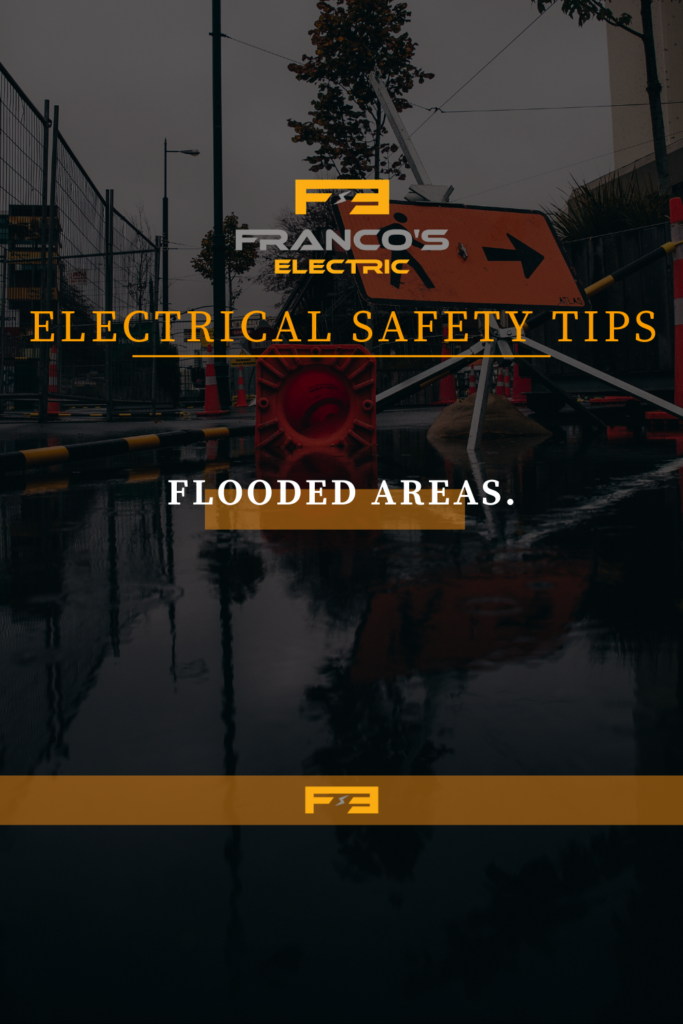Florida is famous for its beaches and sunshine, but it’s also unfortunately well-known for another reason—Florida hurricanes. Every year, residents brace for the Atlantic hurricane season, which brings the risk of torrential rain, storm surges, and destructive winds. While most people prepare by stocking up on water, canned food, and batteries, one often overlooked aspect is electrical safety during and after flooding.
When floodwaters rise, electricity can become deadly. That’s why it’s critical to know exactly how to act to protect yourself and your family. This article will guide you through key flood safety tips with a focus on power outage safety and handling electric hazards during emergencies.
1. Never Enter Flooded Areas With Potential Electrical Hazards
Water is an excellent conductor of electricity. If floodwaters come into contact with electrical outlets, appliances, or power cords, the entire area can become electrified. Never step into a flooded basement, garage, or any room where electrical sources are submerged or might be submerged. The risk of electrocution is real and immediate.
If you’re unsure whether it’s safe, stay out. Contact emergency services or your local electric utility for advice.
2. Avoid the Breaker Box if You Have to Stand in Water
One of the first things people think of during a power outage is to turn off the electricity at the breaker box. However, if your breaker box is surrounded by or located near water, do not attempt to access it. Standing in water while touching electrical equipment can result in serious injury or death.
Instead, if you’re unable to access the breaker box safely, call your electric utility provider and request them to shut off power from the outside at the meter.
3. Do Not Touch Electrical Appliances When Wet or in Flooded Areas
When you’re wet or standing in water, even touching a dry appliance can be dangerous if it’s plugged in or has been exposed to moisture. It’s critical to keep your hands and feet dry when dealing with any electric device, even something as small as a lamp or phone charger.
Flood safety tips often overlook this small but important detail: just being damp increases your risk of electrocution. Always dry off thoroughly and assess the area before approaching anything electric.
4. Keep All Electrical Equipment Away from Water
A general rule during hurricane preparedness is to store tools and electronic equipment well above ground level. In case water does get in, at least your devices are safe. Additionally, never use electric yard tools in the rain or on wet ground. This includes lawn mowers, trimmers, and even battery-powered gadgets unless they are explicitly water-resistant and safe for wet use.
When in doubt, wait until everything is dry and inspected before powering anything back on.
5. Inspect All Appliances That Were in Contact With Water
If any household appliance has been submerged or splashed with floodwater—even if it appears fine—do not plug it back in. Water can damage internal circuits and lead to short circuits, sparks, or fires. Call a licensed electrician or appliance technician to assess the device. It may need to be professionally cleaned, repaired, or replaced.
This is a crucial part of power outage safety: once the power comes back on, compromised appliances can pose major risks if turned on without inspection.
Additional Hurricane Preparedness Tips
While electrical safety is critical, here are a few more practical ways to prepare for Florida hurricanes:
- Keep a flashlight and battery-powered radio ready for power outages.
- Use surge protectors where possible to prevent appliance damage.
- Know your home’s electrical shutoff locations and how to use them safely.
- Elevate electrical items if you live in a flood-prone zone.
- After a storm, always assume power lines are live and dangerous.
Final Thoughts
When it comes to Florida hurricanes, prevention is everything. Practicing electrical safety and hurricane preparedness can mean the difference between a manageable situation and a life-threatening emergency. Whether you’re a long-time resident or new to the state, make sure these flood safety tips are part of your emergency plan.
Always prioritize safety, and when in doubt, let professionals handle electrical systems. Floodwaters and electricity are a deadly combination—respect both and stay prepared.



